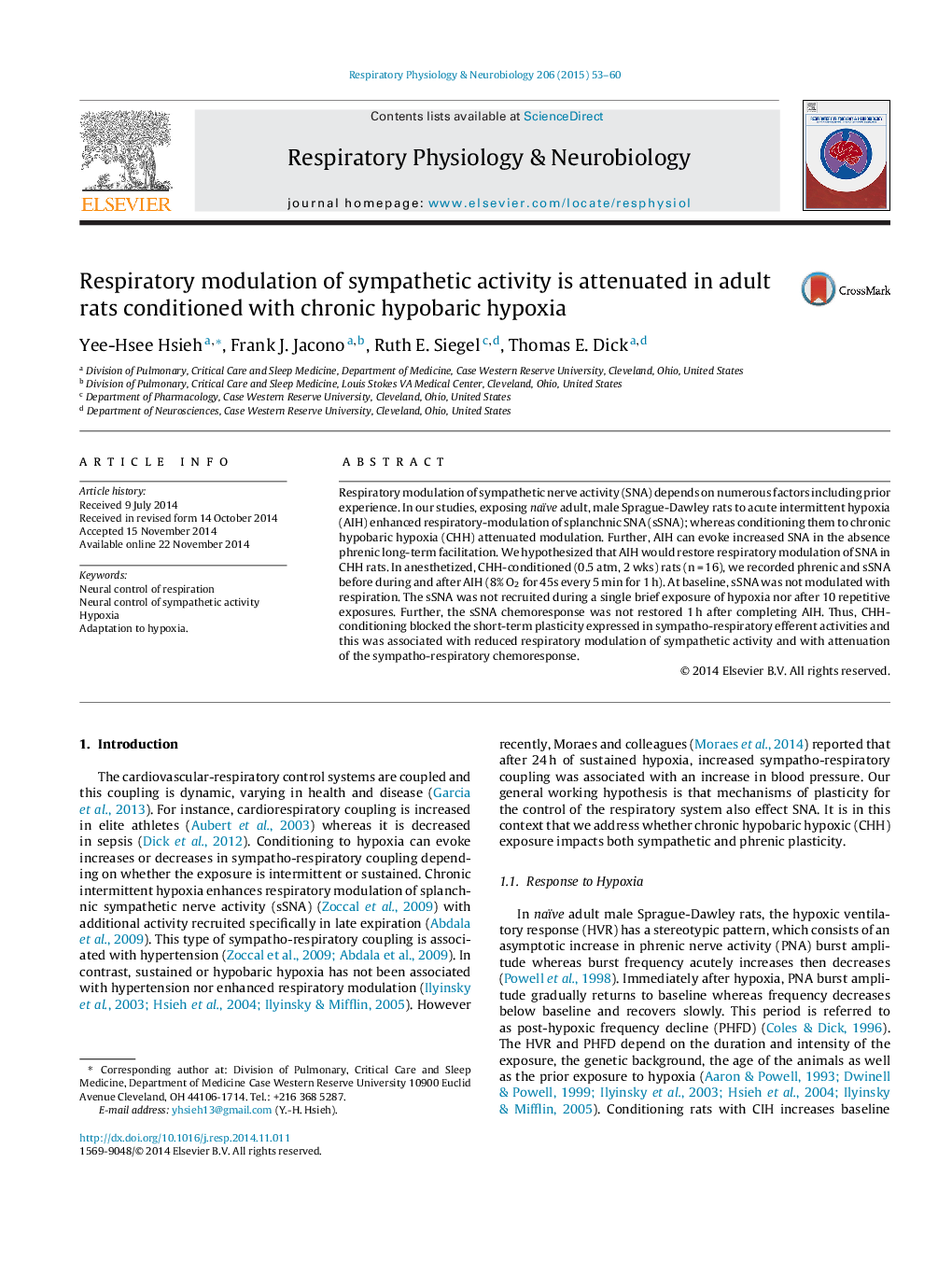| Article ID | Journal | Published Year | Pages | File Type |
|---|---|---|---|---|
| 2846897 | Respiratory Physiology & Neurobiology | 2015 | 8 Pages |
•Chronic hypobaric hypoxia attenuates respiratory modulation of sympathetic activity.•Respiratory modulation of sympathetic activity is inconsistent from breath-to-breath.•Respiratory and sympathetic motor activities do not express their dynamics during and after hypoxia.•Repetitive acute hypoxic exposures does not restore the hypoxic response, evoke long-term facilitation and enhance the respiratory-modulation of sympathetic activity.
Respiratory modulation of sympathetic nerve activity (SNA) depends on numerous factors including prior experience. In our studies, exposing naïve adult, male Sprague-Dawley rats to acute intermittent hypoxia (AIH) enhanced respiratory-modulation of splanchnic SNA (sSNA); whereas conditioning them to chronic hypobaric hypoxia (CHH) attenuated modulation. Further, AIH can evoke increased SNA in the absence phrenic long-term facilitation. We hypothesized that AIH would restore respiratory modulation of SNA in CHH rats. In anesthetized, CHH-conditioned (0.5 atm, 2 wks) rats (n = 16), we recorded phrenic and sSNA before during and after AIH (8% O2 for 45s every 5 min for 1 h). At baseline, sSNA was not modulated with respiration. The sSNA was not recruited during a single brief exposure of hypoxia nor after 10 repetitive exposures. Further, the sSNA chemoresponse was not restored 1 h after completing AIH. Thus, CHH-conditioning blocked the short-term plasticity expressed in sympatho-respiratory efferent activities and this was associated with reduced respiratory modulation of sympathetic activity and with attenuation of the sympatho-respiratory chemoresponse.
